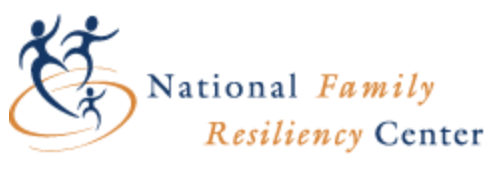3 TIPS ON OVERCOMING RELATIONSHIP CHALLENGES
My name is Simone and I am a senior at Centennial High School. The National Family Resiliency Center (NFRC) has been a part of my life for over six years. I was a client after my mom and stepfather separated in 2008; later, I became a peer counselor.
A peer counselor is an individual, who has had previous experience with a family transition, such as divorce or separation, and, with the help of counseling, has been able to work through many of the associated challenges. Peer counselors contribute to group sessions by sharing their stories and offering advice to others.
I have learned three critical tips in overcoming relationship challenges:
Get a second opinion
For me, this has often come from my mom or fellow group members at NFRC; for others, trusted friends. It’s okay to ask for help when faced with significant challenges in our lives.
Many times, when I act out or make a regrettable decision, it’s because I let my feelings build up without sharing them. We need someone to “edit” our approach to handling a relationship problem. Sometimes, the close involvement with a person in conflict means we only see one way of doing things, not realizing that it might be more destructive than helpful. When provided with an alternative perspective, we may find the positive solution we need to take the next step.
Be Assertive
For those of you who, like myself, fear conflict, this is especially important. The first step in having our needs met is voicing them. However, finding the courage and words can be elusive. This is where a second opinion and organizations like NFRC come in. Group sessions, with professional counselors, provide a place where you can communicate your needs to others experiencing similar struggles.
If you still need a vote of confidence, you can rely on a trusted friend to help you or turn to your faith for guidance.
Define your own relationships
This is a major step in overcoming relationship challenges. We often try to have relationships with family members fit into a societal mold of what they should look like. As a result, we are disappointed when they turnout differently.
However, it is important for us to honestly acknowledge our situations, specifically defining how we want that relationship to look. My relationship with my dad was one racked with personal challenges. I couldn’t understand why I wasn’t “Daddy’s little girl,” connecting with him in the way other girls seemed to with their fathers. The truth is, we don’t actually connect with everyone; sometimes this includes parents. NFRC enabled me to realize that relationships take different shapes throughout our lives. Sometimes, it is best to work within the boundaries of your own personality and that of the other person, forgetting about what everyone else says.
My personal journey has led me to discover my passion for learning about familial and marital relationships. I am excited to begin blogging.
I encourage my fellow peer counselors and other teens to offer their invaluable advice through blogging. I hope that we may be able to improve relationships – one post at a time.
